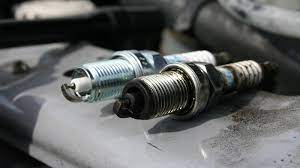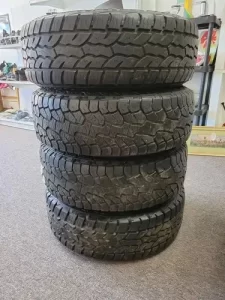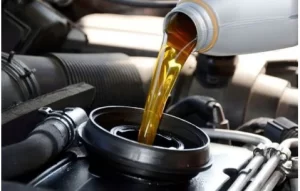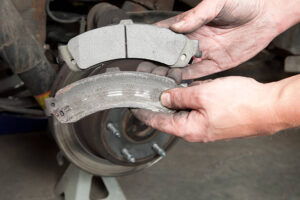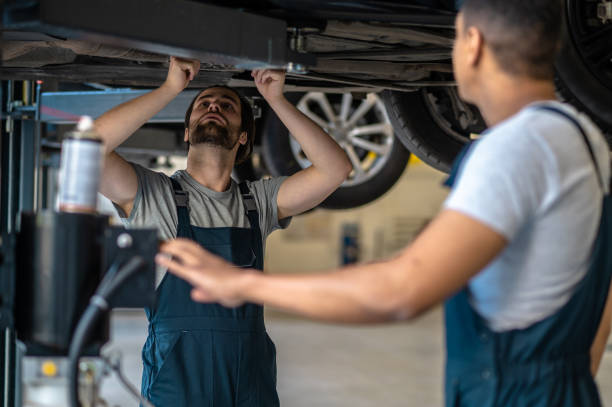
At least once a week, take a stroll around your car. As you walk around your vehicle, check for any body damage. Check your tires and windows for wear, cuts, or punctures.
Check your air filter
Many car problems can be caused by clogged air filters or too loose ones. Air filters keep your engine clean by blocking dust, pollen, and other contaminants. When dirty, an air filter can restrict airflow to the engine. This will reduce power and performance, as well as fuel economy. It would be best if you replaced your air filters every 12,000.
Regularly check your tire pressure
The fuel efficiency can be affected by the tire pressure. The pressure also impacts handling and comfort. Your car’s owner’s guide will list the recommended tire pressure. In general, the tire pressure should be checked every week.
Clean the exterior of your engine
The exterior engine of your car is just as important as the internal engine. Even minor debris in the wrong location can damage your engine if not cleaned properly. While checking brake fluid, for example, you might find some grease. This can cause brake damage. Check your brake fluid level at least every month.
Protect Your Headlights
Once a month, turn on your headlights when parking in front of a level surface. This will allow you to verify that both headlights work properly and are positioned correctly. Walking around your vehicle, you can visually inspect your turn signals and parking lights. Ask a friend or family member to stand behind your car as you apply the brakes. This will ensure that the brake lights work.
Check your battery
The battery in your car is essential to its operation. The battery in your vehicle is responsible for supplying a lot of electrical current to the starter, engine, and other electronic components. Battery performance is affected by extreme temperatures, so it’s essential to test your battery regularly.
Change your spark plugs
Spark plugs can affect the performance of your vehicle’s engine. The spark plugs are responsible for igniting your car’s gas-air mixture. When the spark plugs are not working correctly, the engine will lose power and won’t perform at its best capacity. Get a professional to inspect your spark plugs and replace them if they are faulty.
Rotate and balance your tires
Tire rotation is essential to maintaining the performance and safety of your vehicle. Your vehicle will have a faster steering response and ride smoother. Rotating your tires will help them wear evenly and extend their life. Check the pressure in your tires at least once a month and before long journeys or extra loads. Your car’s manual will tell you the air pressure required for each tire.
Ensure your cooling system works
Your car’s radiator and cooling system must be cleaned to work effectively and efficiently. Normal wear and tear can cause deposits to build up in your car’s cooling system. A radiator flush is inexpensive and quick to keep your cooling system running smoothly. Check your vehicle’s manual to see if the radiator needs to be flushed every year or every two years.
Understand the different warning lights
Most cars are equipped with sophisticated systems of sensors and warning lights. These can tell you anything from whether or not you have forgotten to replace your gas cap to if one of your tires is running low on air. Find out what your car’s warning lights mean and how to fix them. The owner’s guide can be a great resource. Take your vehicle to a mechanic if you cannot fix the issue yourself.
Remove brake dust from your wheels
Brake dust does not affect brake performance, but it can make your wheels look a bit shabby. The brake dust is created when the brake rotors and pads come into contact. Iron makes up 92% of brake dust. The remaining 8% is grime, dirt, and carbon particles. These particles can cause severe stains on your wheels if exposed to sunlight alone with your revolution. Therefore, wiping the dust from your wheels with a wet sponge is essential. You’ll need cold water as dust usually sticks to wheels through static electricity.
Protect the interior of your car
Avoid eating inside your vehicle as much as you can. Covering surfaces is a good idea. Floor mats will prevent you from tracking dirt or mud into your carpets. Seat covers can help protect the upholstery of your car seats. Blankets can help improve your posture, and they can even customize the appearance of your vehicle. Vacuum the car frequently. Keep your windows open if you live in a hot area. If you can’t let the hot air out, it could dry your interior and cause damage.
Check drive belts
The engine generates power to power other parts and accessories, including the management your vehicle needs to run. Drive belts transfer power from the crankshaft or cram to your car’s alternator and other mechanical devices. Modern vehicles use one belt, also known as a serpentine chain, to connect and turn the crank pulley. These belts, usually made from rubber or polymers, wear out quickly, even when used regularly. Inspecting these belts for any visible hairline cracks or changes in their integrity is vital. If your engine is not chain-driven, you must also check the serpentine or V belt and timing belt.
Check Oil Levels
Your car’s engine has many mechanical moving parts that cause friction when they rub against each other. This friction can generate heat, which in turn can reduce engine performance. It is, therefore, crucial to minimize, if not eliminate, friction in these parts. You may hear loud noises coming from your engine, and you could see a significant reduction in fuel efficiency. As part of the essential maintenance of your car, you should check your engine’s oil. You should also pay attention to the color of your oil. It shouldn’t look black. The dark color is usually a sign of contamination, heat, chemical additives, or sludge. In your owner’s guide, you will find the recommended oil changes. Check the oil’s viscosity for your vehicle and the environment in which it operates.



